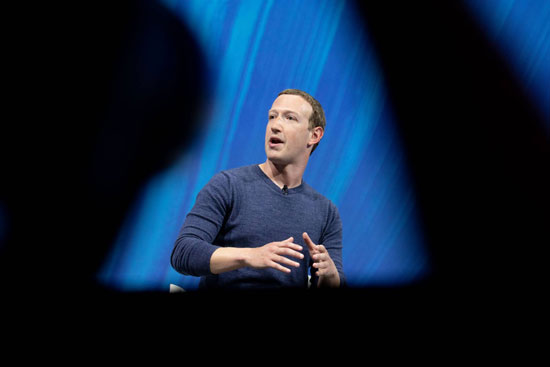有危机没关系,能赚钱才是王道

|
危机?有危机吗? 两周前,Facebook发布了惊艳的第四季度和全年财务业绩,而我的新同事丹妮尔·奥布里尔也对此进行了较为详细的报道。公司的季度营收跃升了30%,达到了近170亿美元,对于已然庞大的营收额来说,这一增速实在是惊人。公司的利润飙升了61%,达到了近70亿美元。Facebook拥有超过15亿名用户,同比增长9%。这一增幅再一次令人感到震惊,因为Facebook在发达国家市场已经达到饱和。同时,用户增长地域的分布之广也颇为令人侧目。 Facebook的股价在盘后一路高歌。 有一点可以确定的是,有关Facebook的一些负面问题,例如左右选举、煽动处决印度少数种族、无耻地出售其用户的个人数据、对上述这些问题拖延敷衍,对于那些置身事外、以聊天族为主的群体,以及纽约、华盛顿和旧金山这样的城市来说并非是什么大不了的事情。在现实世界,数千万用户依然热衷于发布其精心策划的生活照,与高中同学进行攀比,并观看那些无厘头视频,但所有这些内容都无需耗费Facebook一分钱。 这对于首席执行官马克·扎克伯格来说是一个绝妙的商业模式,他花重金聘请了内容管理者和说客,将其他问题一一清理掉,就像是这些商业问题在一开始就不存在一样。 说起Facebook,我推荐大家读一篇长文,由从不轻率肤浅、但下笔如有神的本·汤普森撰写。他围绕我在1月所撰写的同一个问题发表了一篇文章。这个问题是:BuzzFeed和无数其他出版商错误地认为,Facebook将成为他们的衣食父母。在《BuzzFeed的教训》一文中,汤普森做了一件在媒体界十分罕见的事情:他承认自己犯了错。他像那些未能做出正确判断的媒体高管一样,认为Facebook可能会利用出版商的知识产权内容来吸引观众,然后分享由此带来的经济效益。然而,Facebook把好处都留给了自己,让那些试图利用Facebook平台,以及销售数字广告的行为成为了笑话。 1月下旬,一篇生动的评论描述了行业的幼稚心理,该文出自一名被BuzzFeed解雇的作者。杰西卡·特斯塔对《纽约时报》说:“我们的作品一直以来都广受好评,在行业内部和读者中都是如此。我们改变了规则,获得了奖项,而且也吸引了众多流量。”关于自己和同事作品的质量,特斯塔毫无虚言。然而,她也是在提醒那些过度投资无效商业模式的高管。在这个由Facebook和谷歌掌控着所有流量营收的世界,流量是无关紧要的,真正重要的是如何让用户为好作品掏腰包。(财富中文网) 译者:冯丰 审校:夏林 |
Crisis? What crisis? Facebook reported stellar fourth-quarter and year-end financial results at two weeks ago, as my new Fortune colleague Danielle Abril explores in some depth. Quarterly revenues jumped 30% to nearly $17 billion, an astounding growth rate off such a large number. Profits soared 61% to almost $7 billion. Facebook has more than 1.5 billion users, up 9% from a year earlier, again, a shocking increase given its saturation in richer countries and also notable for the broad geographic distribution of the user gains. In after-hours trading, Facebook’s shares soared. It has become clearer than ever that Facebook’s problems—enabling the stealing of elections, encouraging the persecution of ethnic minorities, shameful peddling of the personal data of its users, tardily copping to these transgressions—don’t matter all that much outside of precincts dominated by the chattering classes, places like New York, Washington, and San Francisco. In the real world, millions of people still love posting photos of their perfectly posed lives, comparing themselves with high school classmates, and watching silly videos—all content Facebook doesn’t pay a dime to produce. It’s a brilliant business model for CEO Mark Zuckerberg that throws off plenty of cash for hiring content chaperones and lobbyists to make his other problems go away. Not as if there were ever business problems in the first place. Speaking of Facebook, I recommend this long article by the never brief but always excellent Ben Thompson. He addresses the same issue I wrote on January, the mistake BuzzFeed and countless other publishers made thinking that Facebook would be their salvation/meal ticket. In “The BuzzFeed Lesson,” Thompson does something highly unusual in the media world: He admits he was wrong. He, like media executives who didn’t think things through properly, assumed Facebook would want to share the economics of the audiences it was attracting on the back of publishers’ intellectual property. Facebook, instead, kept the loot for itself, making a mockery not just of trying to leverage Facebook’s platform but also selling digital ads at all. A telling comment by one of BuzzFeed’s laid off writers illustrated the industry’s naïvete on late January. “Our work has always, always been celebrated, internally and by readers,” Jessica Testa told The New York Times. “We’ve changed laws, we’ve won awards, we have great traffic.” Testa is completely right about the quality of work she and her colleagues did. But she’s channeling the industry executives who over-invested in a business model that doesn’t work. Great traffic doesn’t matter in a world where Facebook and Google hoover up all the revenue. What counts is charging money for that great work. |













